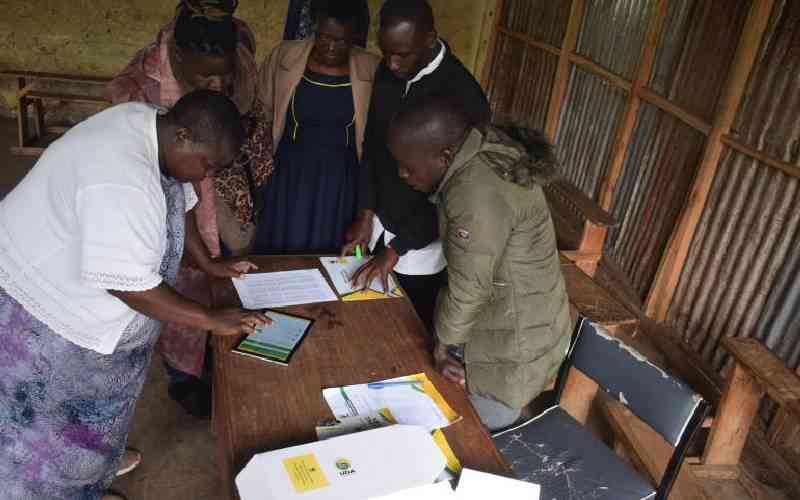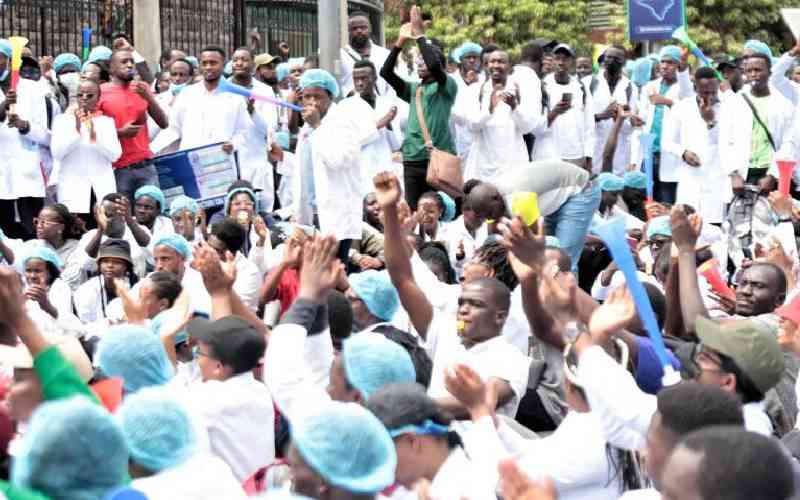By Michael Chepkwony and Edwin Makiche
Farmers in Nandi County where a maize disease ravaged acres of the crop now suspect they were sold fake seeds.
The angry farmers said the disease has only affected the hybrid H614 seed variety preferred by farmers in North Rift region.
The affected farmers spoke through their spokesman, Stephen Rono in Kapsabet where they demanded the Government compensates them.
Rono said the Agriculture Ministry should explain why hybrid H614 was the only variety affected.
“We are being told that it is spreading fast and yet it has not attacked other varieties in this region. Why is this,” he posed.
Rono claimed the ministry was taking advantage of lack of knowledge among the farmers not to shed adequate light on the disease.
They vowed to institute independent tests on their crops and take the Government and Kenya Seed Company to court should they be found culpable.
Kabiyet District Officer, Julius Kiboi had earlier said the attack might be attributed to the differences in genetic makeup.
“One variety may be vulnerable to diseses due to its genetic makeup. But we shall explain after laboratory test,” he told The Standard on phone.
The reaction came after four farmers in Kabiyet division noted only one variety in their plantations had been affected.
Nandi North District Agricultural Officer (DAO) Thomas Bett said farmers have been advised to uproot and burn the diseased crops.
“We have issued such instructions to curb further spread of the disease in the region,” he said.
Meanwhile, Agriculture Minister, Sally Kosgei has advised maize farmers in South Rift to skip one planting season to counter the disease.
Speaking in Bomet at the weekend during a field visit to the affected farms, Kosgei said her ministry has identified the disease as mottle mosaic virus, spread by crop pests.
Stay informed. Subscribe to our newsletter
She also dismissed claims that the disease was borne by faulty seeds saying research had shown that it was a common disease outbreak.
She asked farmers to plant alternative crops such as beans, potatoes and cassava as the government tries to find ways of controlling the spread.
“Farmers should not panic as the disease is now known and the government is working on measures to contain it,’’ Dr Kosgei said.
She said the ministry would not compensate farmers and insisted that the government was not responsible for the outbreak.
 The Standard Group Plc is a
multi-media organization with investments in media platforms spanning newspaper
print operations, television, radio broadcasting, digital and online services. The
Standard Group is recognized as a leading multi-media house in Kenya with a key
influence in matters of national and international interest.
The Standard Group Plc is a
multi-media organization with investments in media platforms spanning newspaper
print operations, television, radio broadcasting, digital and online services. The
Standard Group is recognized as a leading multi-media house in Kenya with a key
influence in matters of national and international interest.
 The Standard Group Plc is a
multi-media organization with investments in media platforms spanning newspaper
print operations, television, radio broadcasting, digital and online services. The
Standard Group is recognized as a leading multi-media house in Kenya with a key
influence in matters of national and international interest.
The Standard Group Plc is a
multi-media organization with investments in media platforms spanning newspaper
print operations, television, radio broadcasting, digital and online services. The
Standard Group is recognized as a leading multi-media house in Kenya with a key
influence in matters of national and international interest.








